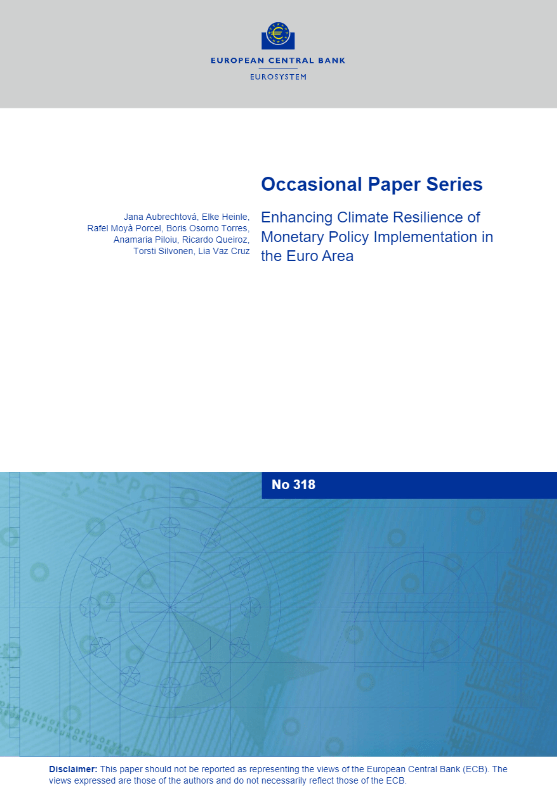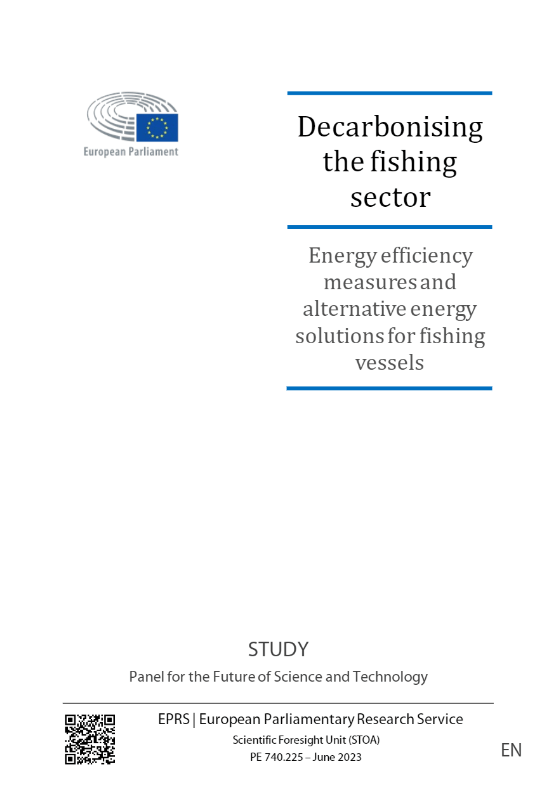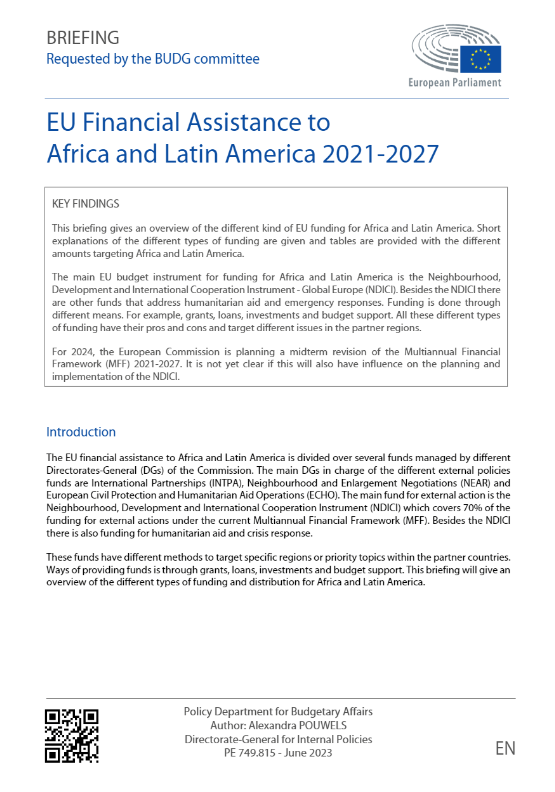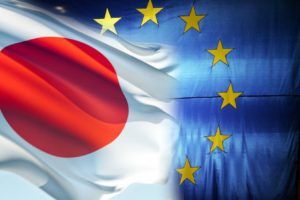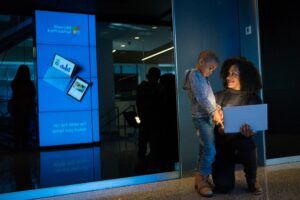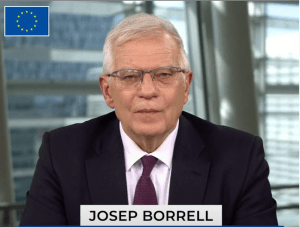
CDE Almería - Centro de Documentación Europea - Universidad de Almería
Centro de Documentación Europea de la Universidad de Almería
Cultura y Educación
Documentación comunitaria en las áreas de Cooperación Internacional Universitaria, Digitalización en el Ámbito Educativo, Espacio Europeo de Educación Superior y Patrimonio Cultural Europeo. Contiene también las últimas noticias, mediateca y boletines relacionados con la materia.
Estás aquí: Fondo Digital CDE > Cultura y Educación

Central banks around the world are increasingly monitoring climate change risks and how these affect their balance sheets and their monetary policy transmission. The European Central Bank (ECB) extensively reviewed its monetary policy implementation framework in 2020-21 to better account also for climate change risks. This paper describes these considerations in detail to provide a holistic perspective of one central bank’s climate-related work in relation to its monetary policy implementation framework. The paper starts by characterising the strategic reflections behind the principles of the enhanced framework and their relationship with the ECB monetary policy strategy review. Climate-related disclosures, improvements in risk assessment, a strengthened collateral framework and tilting of corporate bond purchases are the main pillars of the framework enhancements.
[Leer Más]The fishing sector is facing major challenges in the accelerating energy crisis due to its high dependency on a stable supply of fossil fuels at a low price. This report summarises scientific and grey literature, projects and input from expert interviews to provide an overview of drivers of energy use, and identify potential reduction measures and opportunities for using alternative fuels in fisheries. Each measure is evaluated in terms of greenhouse gas emission reduction potential, costs, challenges, and policy options that could facilitate implementation. A timeline lists measures that could be implemented in the short and long term. The study finds that considerable fuel use reduction can be achieved from fully implementing existing EU regulations (for instance, by rebuilding stocks and allocating fishing opportunities in accordance with Article 17 of the Basic Regulation on the common fisheries policy). To this end, fuel use efficiency and greenhouse gas emissions need to be integrated as an explicit goal of fisheries management, and monitored on the basis of robust data collection.
[Leer Más]This briefing gives an overview of the different kind of EU funding for Africa and Latin America. Short explanations of the different types of funding are given and tables are provided with the different amounts targeting Africa and Latin America. The main EU budget instrument for funding for Africa and Latin America is the Neighbourhood, Development and International Cooperation Instrument – Global Europe (NDICI). Besides the NDICI there are other funds that address humanitarian aid and emergency responses. Funding is done through different means. For example, grants, loans, investments and budget support. All these different types of funding have their pros and cons and target different issues in the partner regions. For 2024, the European Commission is planning a midterm revision of the Multiannual Financial Framework (MFF) 2021-2027. It is not yet clear if this will also have influence on the planning and implementation of the NDICI.
[Leer Más]- « Anterior
- 1
- …
- 35
- 36
- 37
- 38
- 39
- …
- 4.825
- Siguiente »
Noticias relacionadas
Boletines CDE
- BOLETÍN INFORMATIVO EDUCACIÓN Y CULTURA EN LA UE (Nº9)
- BOLETÍN INFORMATIVO EDUCACIÓN Y CULTURA EN LA UE (Nº8)
- BOLETÍN INFORMATIVO EDUCACIÓN Y CULTURA EN LA UE (Nº7)
- BOLETÍN INFORMATIVO EDUCACIÓN Y CULTURA EN LA UE (Nº6)
- BOLETÍN INFORMATIVO EDUCACIÓN Y CULTURA EN LA UE (Nº5)
- BOLETÍN INFORMATIVO EDUCACIÓN Y CULTURA EN LA UE (Nº4)
- BOLETÍN INFORMATIVO EDUCACIÓN Y CULTURA EN LA UE(Nº 3)
- BOLETÍN INFORMATIVO EDUCACIÓN Y CULTURA EN LA UE (Nº 2)
- BOLETÍN INFORMATIVO EDUCACIÓN Y CULTURA EN LA UE (Nº1)
